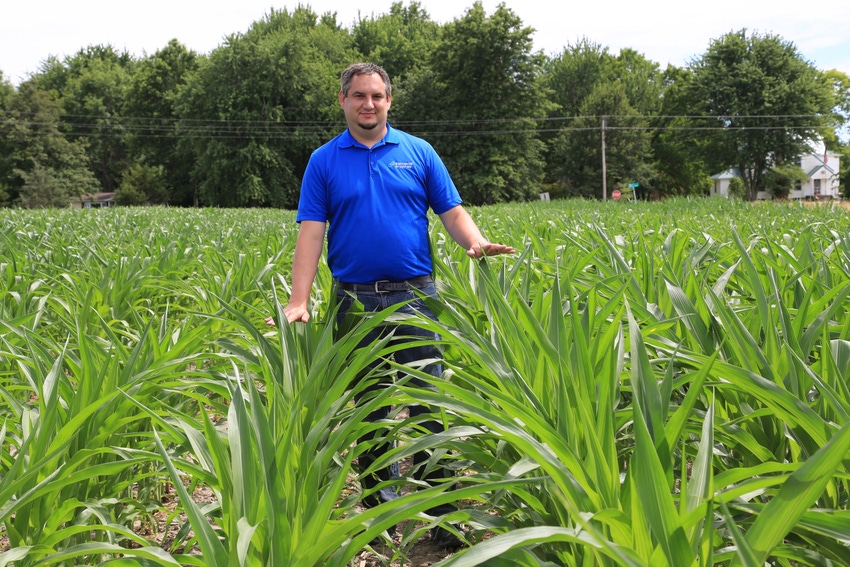March 20, 2017

Think Different
Jason Gahimer, Beck's Practical Farm Research operations manager, liked what he saw with Envigor in 2016, but he says that's not enough when looking at new products.
"We recommend a multi-year, multi-location approach, whether doing your own trials or evaluating trials like ours. Review the data for yield increases and the rate of return on investment," he says.
"If we have positive results for a minimum of three years with increased yields and an average positive return, we consider a product PFR Proven," says Gahimer.
-----------
Extreme temperatures high or low, drought, excess water and even too much sunlight can all cause abiotic stress. And this stress shuts down photosynthesis, respiration and other vital plant systems. However, abiotic stress can occur even when the extreme weather isn't as noticeable.
Growers face an explosion of new products claiming to address abiotic stress – some chemical, some biostimulant. Envigor, developed by a crop technology start-up in Missouri called Elemental Enzymes, relies on the chemical approach to affect intercellular water management. Another product, called Photon from Crop Microclimate Management, is a biostimulant that immunizes the plant against stress.
Jason Gahimer, Beck's Practical Farm Research (PFR) operations manager, likes what he saw of Envigor (initially known as Eagle) this past season. "We applied 3.2 ounces of Envigor with a fungicide treatment during VT growth stage and had an average yield increase of 5.4 bushels – or a $14.84 return on investment," says Gahimer. "It performed well under different conditions at multiple sites, averaging 203.1 bushels compared to 197.7 with just the fungicide. We look at a lot of products, and it was one of the top five that we felt had serious potential."
"Envigor increases intercellular water storage and reduces water loss for three to four weeks of protection," explains Brian Thompson, PhD, co-founder of Elemental Enzymes. "It has three different modes of action that offer visual relief from stress, as well as reducing stress caused yield loss."
Preps plant for stress
Photon takes a different tack to achieve similar results. When applied, it mimics plant stress to inoculate the plant against stress later in the growing season. Test plots throughout the Midwest have produced an 8% average yield increase in corn and soybeans when applied early season.
"When the crop experiences the mimicked stress, it retains a biochemical memory and appears to better withstand additional stress later in the season," explains Chuck Kupatt, director of research and development for Crop Microclimate Management.
"Photon can be applied by itself or with tankmix partners, and we see the effect all the way to harvest. The greater the stress that occurs after application, the greater the yield response. Even when growing conditions are fantastic, we usually see some yield increase."
Envigor is now available, and Kupatt expects Photon to be available in the U.S. this growing season. It is already being used in Brazil.
About the Author(s)
You May Also Like




